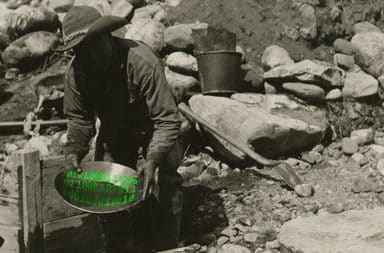Over the past year, the COVID-19 pandemic has been devastating to America's senior citizens, having taken the lives of over 400,000 of our elderly neighbors to date. The entire country deeply mourns the loss of these parents, grandparents, and other beloved family and community members. That’s why it's important, more than ever, to protect the elderly from the virus by not visiting them, so that when this pandemic is over, we can continue not to visit them, just like we did before.
In the early days of the pandemic, we witnessed several horrific outbreaks in long-term care facilities. To prevent spreading the virus to the elderly, we advised you to avoid in-person visits—which you were secretly relieved about because you'd been busy with work lately and needed an excuse to cancel Boggle night with your recently widowed grandmother. Boring!
This pandemic has been long and hard. Many of you have gone months or even the entire year without seeing your elderly relatives. We know you're eager to get back to making inconsistent monthly visits to your 87-year-old father and checking your watch and sighing the entire time. And lately, the development and distribution efforts of several promising vaccines have given us hope of getting back to our regular lives. Yet we must be patient. Until everyone is vaccinated, we need to stay away from the elderly so that one day, when it's safe to visit them, they will be alive to hear you say you can't make it because you have a thing that day.
Whether your aged family members live in a depressing, white-walled nursing home that smells like piss, or by themselves in your childhood home with lots of stairs, we must treat them with utmost dignity and respect. That’s why, if your bedridden WWII-veteran grandfather begs you to come play checkers in his windowless nursing home cell, you must gently but firmly refuse, no matter how difficult (you like to think) it is. If you stopped by, even just to say hello (because that’s all you have time for anyway), you could end up infecting and killing him and dozens of other residents. And when the pandemic is over, you—and many other grieving families—would be robbed of the opportunity to fleetingly think about visiting Gramps that Sunday, if your kid’s soccer tournament doesn’t go too late.
In the meantime, continue to keep in touch with the beloved seniors in your life with phone or Zoom calls, always wrapping up early because sorry, you have to go—your kid needs help rehearsing lines for the virtual school play and then you're going to binge-watch Bridgerton in the bathtub. You know your 95-year-old mother who lives alone with a broken hip and chokes down freezer-burned Marie Callender's meatloaf TV dinners every night with tears streaming down her face understands how difficult this pandemic has been for you personally.
Whoever they are, we must keep our at-risk elderly relatives safe from the devastating effects of COVID-19, so that one day when it is safe to visit them, we will once again be able to say, “Sorry, I forgot,” or “But I saw you last week—I'm pretty sure it's my sister's turn,” or “I have to cancel—my coworker's pregnant corgi's gender reveal party is that day, and I need to bake the Milk-Bone cake.”
Our senior citizens are a national treasure, precious and invaluable. We know (you like to think) it's hard being away from the people who lovingly raised and cared for you before you left them to rot. But we promise that waiting to visit the elderly will be worth it. Someday, it will be safe to hug them, kiss them, and ask them for money in person, and the reunions will be joyous. Or they would be if you had time to go—maybe next week (or Christmas. Or their funeral). And afterwards, once the initial novelty wears off, you'll once again be able to continue not to visit them—and things will be back to normal.


